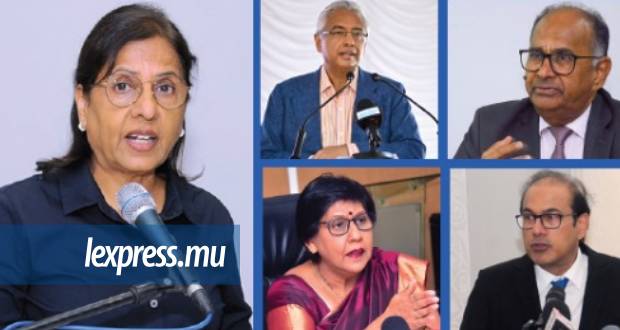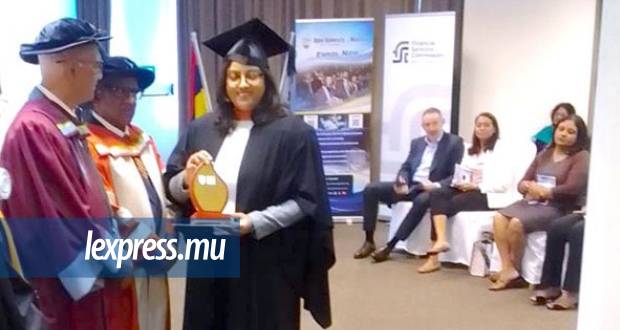Publicité
The formula proposed in replacement of the infamous BLS may be a time bomb
Par
Partager cet article
The formula proposed in replacement of the infamous BLS may be a time bomb

The mode of election of sixty two members to the National Assembly is contained in the First Schedule of the Constitution. Likewise, the allocation of eight additional seats to allow fair ethnic representation without, as far as possible, disturbing the will of the electorate as expressed in the results of the general elections. The allocation of seats to the eight best losers may be traced back to the strong representations made by minority parties at the constitutional talks in London and similar representations made to constitutional experts detailed by the British to Mauritius.
The Best Loser System (BLS) will go down in history as an obstacle to welding Mauritius into a well-knit nation. Fortunately, although many abhorred BLS, it required Resistance ek Alternativ and its allies to valiantly challenge its existence in a democratic nation.
It should be noted that the proposed reform in the White Paper covers only a very small part of our Constitution. Other important aspects of Chapter V – Parliament are left untouched although they, too, are badly in need of reform. But let us stay for a while with the most important proposal in the White Paper - the replacement of the present BLS by a separate list of persons irrespective of their community. The bone of contention in the future will, in our humble view, centre around the workings of this new creature. It will dependon the degree of democracy prevailing in the nation, within political parties and in every nook and corner of the country. Let me explain.
In constitutional theory the Prime Minister is primus inter pares. In practice, however, since independence, there has been a move towards prime ministerial government. In his position as head of the government, Leader of the House and Chairperson of the Cabinet, he has assumed formidable powers so that instead of being his equals, ministers are reduced to the position of second fiddles. The situation has been such that ministers have been overawed throughout the five-year mandate. The PM’s prerogative of “hiring and firing” keeps potential challengers at bay. And all this despite his current inability to influence the mode of appointment of the best losers. By how much will his already immense powers be enhanced if he is allowed to choose those that should be appointed as best losers? On what criteria will he base himself to do so? If he is defeated in the FPTP, the party list will retrieve him as his name will certainly top the list. The same reasoning applies to all the opposition parties who obtain at least 10% of the overall votes.
How can a person who has been rejected by the electorate of a constituency be imposed upon the country either as PM or Leader of the Opposition through the operation of the proposed BLS? This proposed formula will cause a lot of embarrassment to party leaders, not to mention the pressure that will be exerted upon them by their party members and their followers. We are fully aware of the lack of democratic practices in the workings of political parties. But what is to prevent a successful elected former minister to challenge the right of the outgoing and defeated PM to appoint those on the party list? What constitutional powers will he avail of to propose himself as first or second best loser (in the case of a defeated Leader of the Opposition) to the Electoral Supervisory Commission?
Many other serious questions will hopefully continue to be asked by right thinking members of our society before the proposal is approved by the nation. Such an important matter cannot be left solely in the hands of those who are comfortably seated in the National Assembly. Both those in power and those in opposition will rack their brains to come up with proposals that will guarantee their survival. Remember the adage “head I win, tail you lose”. If anybody casts a close look at the system, he will see that two persons are almost certain of being either PM or Leader of the Opposition. This explains why their present marriage of true minds does not foresee any impediment (to borrow from one of Shakespeare’s sonnets).
Further, lessons must be drawn from the electoral system in Rodrigues which contains a heavy dose of PR. In the 2002 election, Serge Clair’s party won eight of the Local Region seats against four to the Mouvement Rodriguais. Serge Clair was, however, defeated and PR could not save him. A candidate could not have two bites at the cherry. The Electoral and Supervisory Commission appointed the six Island Region Members on the basis of an objective calculation as provided by the Rodrigues Regional Assembly Act.
Finally, one of the elected members of OPR was prevailed upon to resign and a bye-election saw the appearance of Serge Clair as the Chief Commissioner. What would have happened if Daniel Spéville had held on to his position of the first Chief Commissioner of the Rodrigues Regional Assembly and Robert Spéville had refused to resign and provoke a bye-election?
Such a scenario is not farfetched and may be repeated if the first option in the White Paper is retained. That option is the best for democracy as it is based on an objective calculation of the people’s preferences. But if, instead, the third option is retained, it will definitely be a mockery of democracy and the system will, one can predict, explode in the face of its champions. As some keen observers have noted the ethnic consideration, denied access through the front door, will surreptitiously enter through the backdoor.
A redeeming feature of the White Paper is the stress on the participation of more women in the affairs of the Republic. One wonders when there will be a serious suggestion that, after having witnessed three male PMs, we have a woman at the helm. Another serious lacuna is the number of mandates for the position of PM and the age limit for membership of the Assembly.
No provision is also made for attracting young people to active politics. The financing of political parties from the scandalous Lotto Fund could be instrumental in encouraging the most creative and dynamic sections of the electorate to join and prepare the replacement of the post independence politicians.
Publicité
Les plus récents






